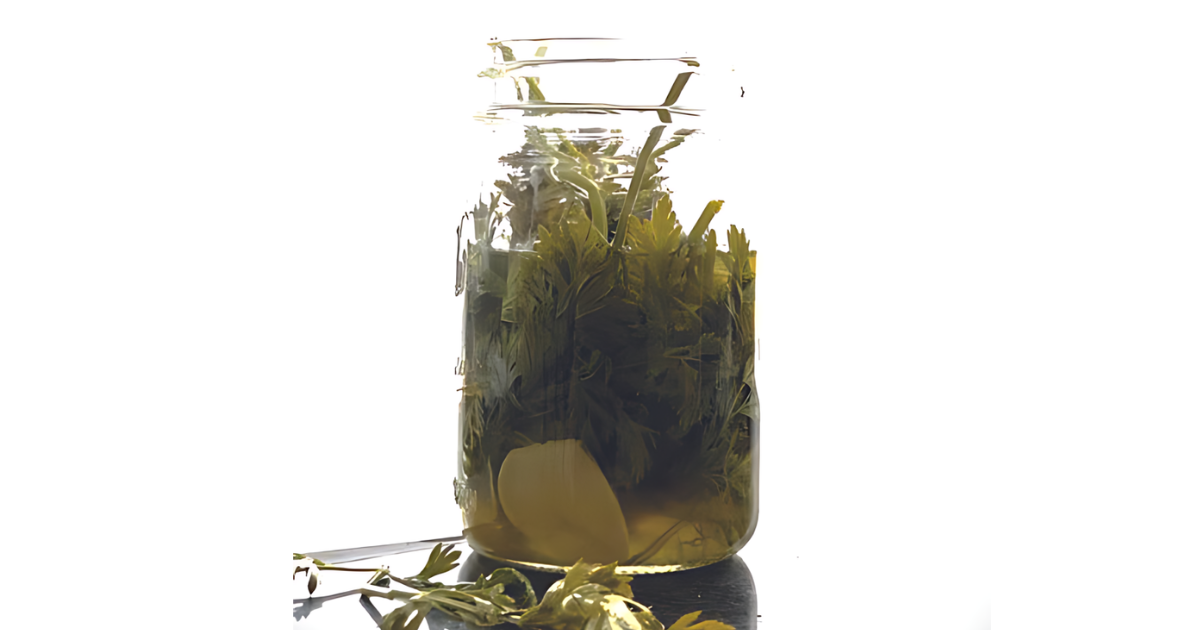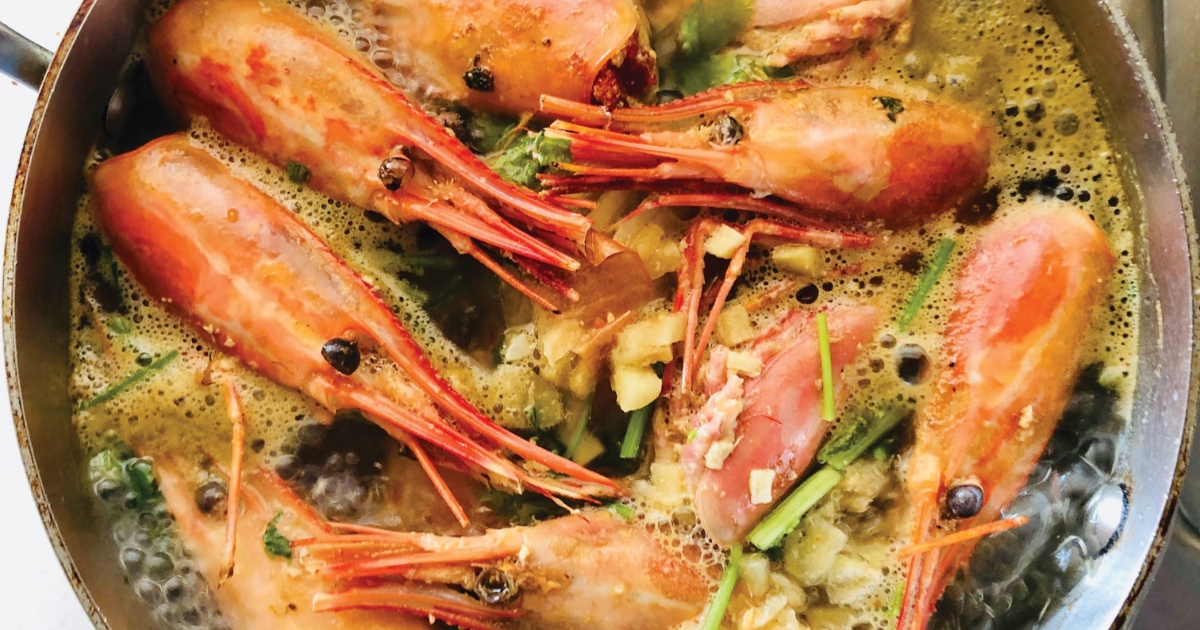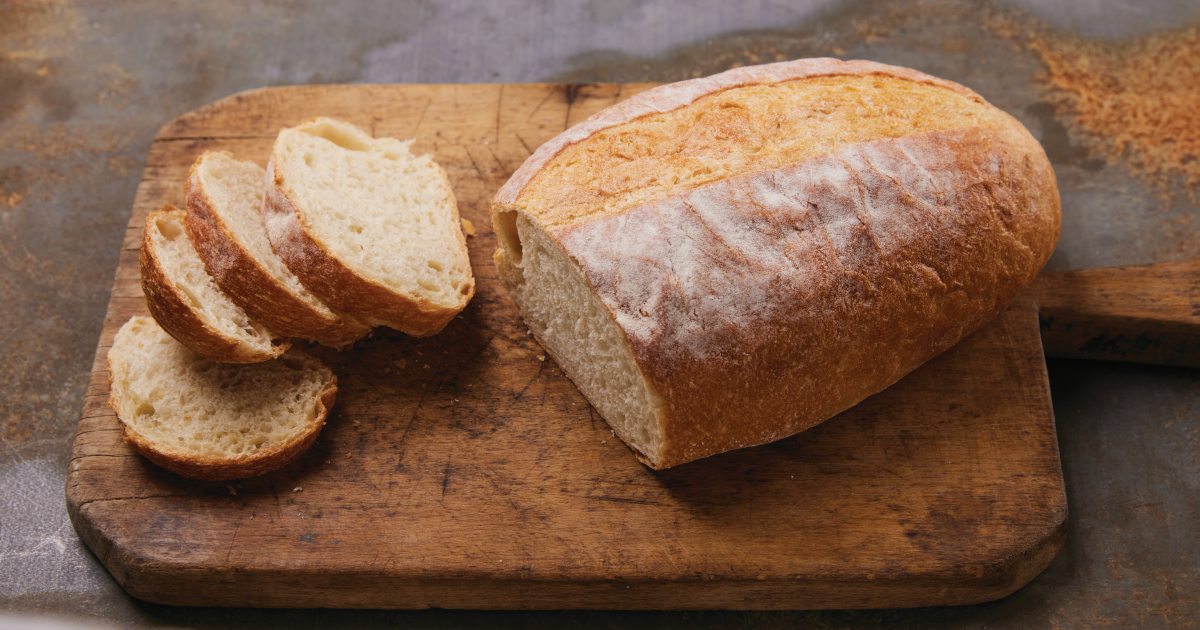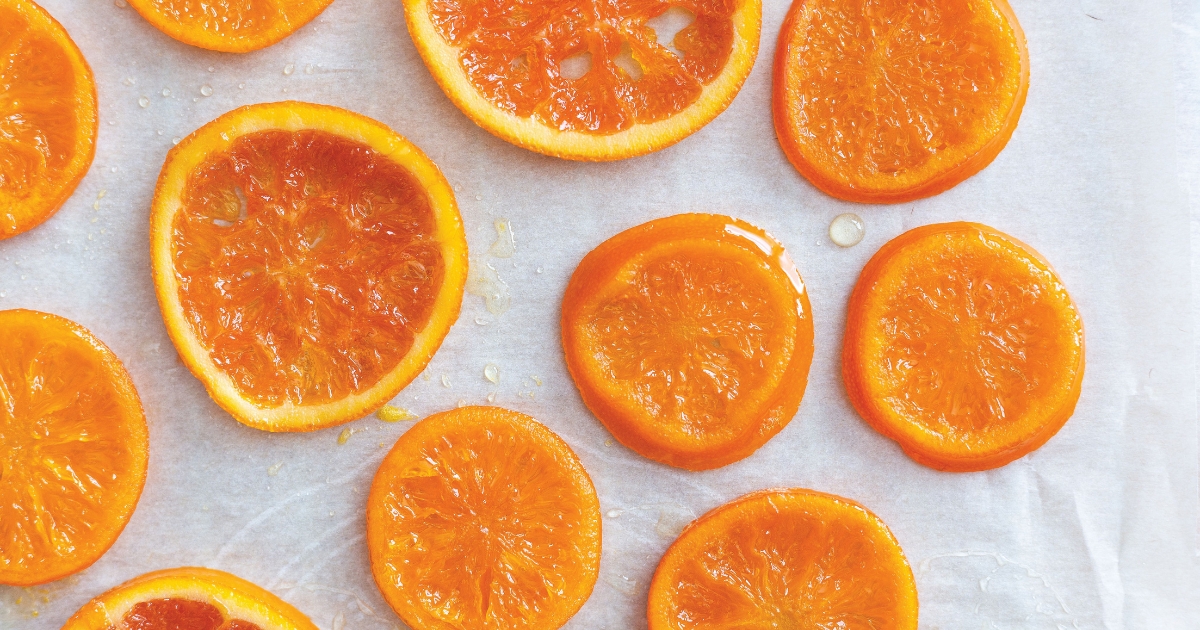Langdon Hall is known as a luxurious retreat. Just one hour from Toronto, the Cambridge, Ontario, property boasts plush, Hollywood-worthy suites and an afternoon tea service fit for a princess.
And yet, with chef Jason Bangerter at the helm, Langdon’s dining room has also made a name for itself, not just for its innovative and delectable dishes but also as a local-food and Ocean Wise advocate.
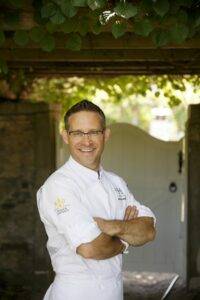
Jason Bangerter
We had the opportunity to chat with Bangerter about good food, sourcing local and sustainability.
Harrowsmith: Your dining room is certified Ocean Wise. What does this mean to you?
Jason Bangerter: Langdon Hall is 100 percent Ocean Wise certified. This means that every piece of fish or seafood that comes from a lake, ocean or river has been certified as sustainable and [is from] a source that is not hurting the environment or the species.
We’re also Feast On, which means more than 80 percent of our food and beverage comes from Ontario, which is huge for a hotel.
I was probably the first chef in Ontario to be 100 percent Ocean Wise, in 2009. In 2010, I was invited by Ned Bell in Vancouver because he wanted to launch a Canadian sustainable-seafood day. I was the only chef not from a coastal area to participate. My mom is from Nova Scotia, so I represented the East Coast. Since then, it has come a long way.
Langdon Hall is a Relais & Châteaux property, a luxury brand across the world. As an organization, it is focusing on all its restaurants to move toward sustainable choices.
HS: How hard is it for you to source what you need for your kitchen, which also has to have the finest-quality ingredients, from local and sustainable sources? Is this difficult to achieve?
JB: Anything you do is difficult if you’re focusing on doing something special or different. You have to spend time sourcing and make sure your source is legit.
Being a hotel and having high-end fine dining, you want to do the right thing, but it still has to be quality, it has to be the best. What I found, by looking for people who are responsible, who are serious about the environment, they also are very serious about the product. Any fisherman that I’ve been working with to bring the best sustainable products from Canada to Langdon Hall, all are really special people. They all care about what they’re giving me and what effect it has on the environment.
That said, I had to work really hard to find these ingredients and the right people. I’ve been doing it a long time. Most of my Pacific seafood comes from one fisherman in Vancouver, Organic Ocean. He only fishes when they’re in season. The albacore tuna I get from him, he fishes it in the peak of the season, when they’re gorging themselves on fatty fish like sardines and mackerel. I’ve never tasted tuna like this before. He fishes it and freezes it right away and I defrost it, and it beats any fresh product from anywhere else in flavour and texture. When you defrost it, it’s like it came right out of the ocean.
In Ontario, I’ve tapped into some interesting people. Kolapore Springs in Collingwood has great trout. There’s a shrimp farm in Ontario.
It takes years of sourcing. Once you find something really special, you know it, and you work with those people and farmers and fishermen, and continue to build relationships.
A big part, too, is training. When I was a young guy, no one talked about sustainability. I worked in Europe for several years, and back in Toronto, I would bring everything over and the quality was terrible. I realized I had to use something closer to home, things I could find in and around Ontario and Canada.
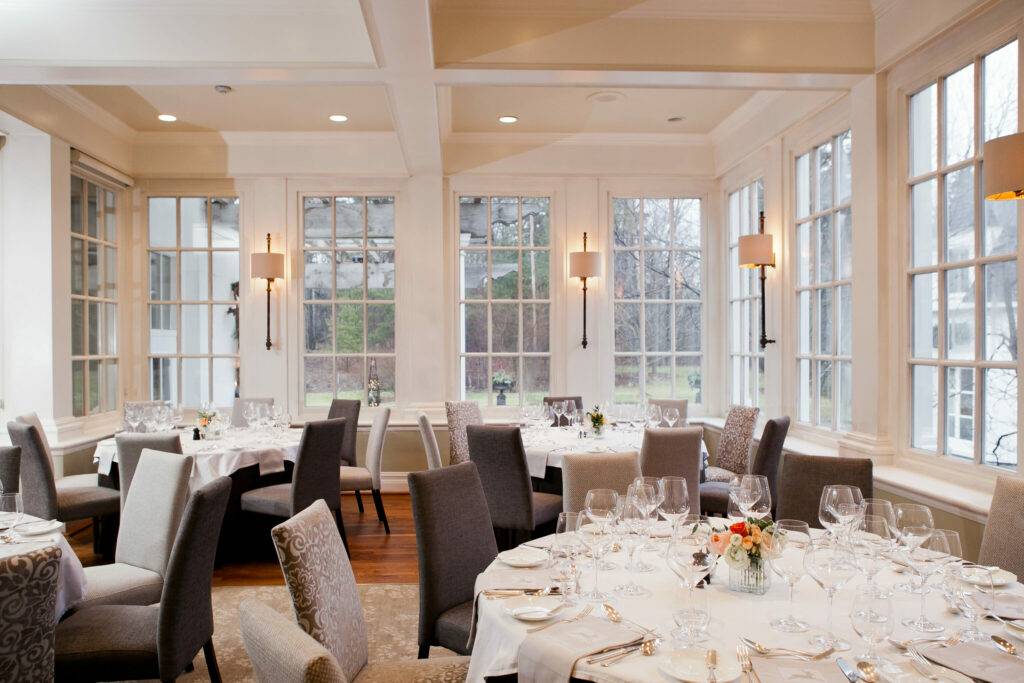
HS: When did you first get interested in Ocean Wise?
JB: I became Ocean Wise when I was in Toronto at Luma, at the TIFF Bell Lightbox. I came to Langdon Hall in 2013 and brought Ocean Wise with me, as well as Feast On.
As you mature, you want to do the right thing, especially having kids. I wanted to serve Canadian product to Canadians, and I wanted it to be fresh and something that doesn’t hurt the environment.
HS: Tell us about Feast On.
JB: Feast On is a certification program. It’s a complete review of all purchases, food and beverage.
It challenged me to think even harder about Ontario products. We went so far as to stop ordering sparkling water from France, like Perrier. Instead, we tap into our own well system and do our own carbonated water on the property.
HS: Is the cost of doing local, sustainable an issue?
JB: Some items are more expensive; it’s more expensive because of the quality. An organic farmer has to spend more money making sure the farm is organic, and it’s the same with fishermen. A fisherman who is dropping a line and bringing one up at a time so they’re not using big nets, and damaging the ocean floor and not killing other species they don’t want to catch, it takes longer, and they may need to spend more money on equipment to catch these fish, and more money on labour. That’s why maybe it might cost a bit more.
On my menu, I have a black cod that’s Ocean Wise, from Organic Ocean. The way they harvest the cod, the way it’s fished, is respecting the law and the season. It’s not overfishing the species, and the process of fishing is not affecting any other species or the environment in the ocean.
I’m actually surprised at how much the consumer knows now, and how much they ask—where is your fish from, etc. Even back in 2010, guests would ask how come I don’t put the farm’s name on the menu. But for me, a menu is like literature. And the assumption is everything on my menu is sustainable. I now have a philosophy page in the menu that talks about sustainability and farming and supporting local.
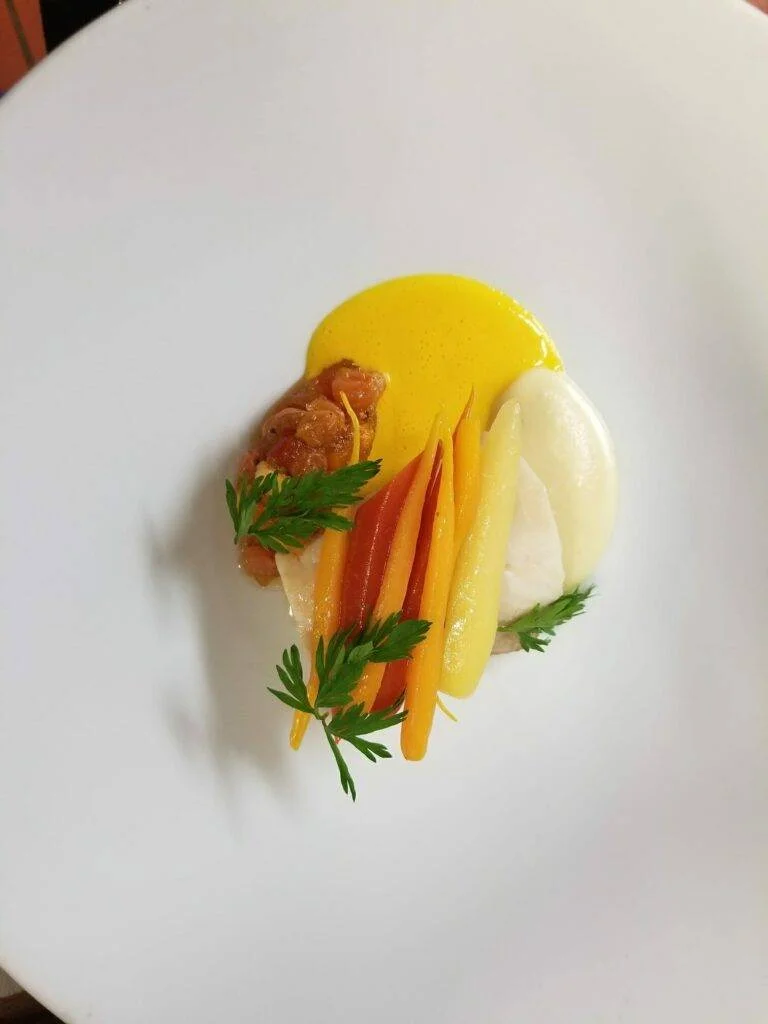
Ocean Wise black cod from Organic Ocean in British Columbia
HS: What inspires you?
JB: My inspiration comes from the property here, a farmer 15 minutes down the street. I can walk in our garden, thinking this is what we’re going to do. I can forage for mushrooms and berries, and it all ties in with what we’re doing here. If you were standing in Burgundy or Tuscany and someone asks you what type of food you cook and you said you do local cuisine, they would look at you funny; of course, you do. That’s history. We’ve come back to basics.
My cuisine is different, the way I cook is different. I’m taking a terroir approach to food. I had a tuna broken all down; it was so gorgeous I couldn’t get rid of it, so I used it as a plate. I used west-coast tuna to make a sashimi, sitting on an east-coast tuna spine. It creates conversation on the table while giving them something really delicious. I’ll serve fresh scallops back on a shell. It’s really connecting the food to the actual source. That’s where my style is going. It tells a story of this place and the philosophy of our cuisine.
An editor with 15-plus years in the publishing business, Catalina Margulis’ byline spans travel, food, decor, parenting, fashion, beauty, health and business. When she’s not chasing after her three young children, she can be found painting her home, taming her garden and baking muffins.









